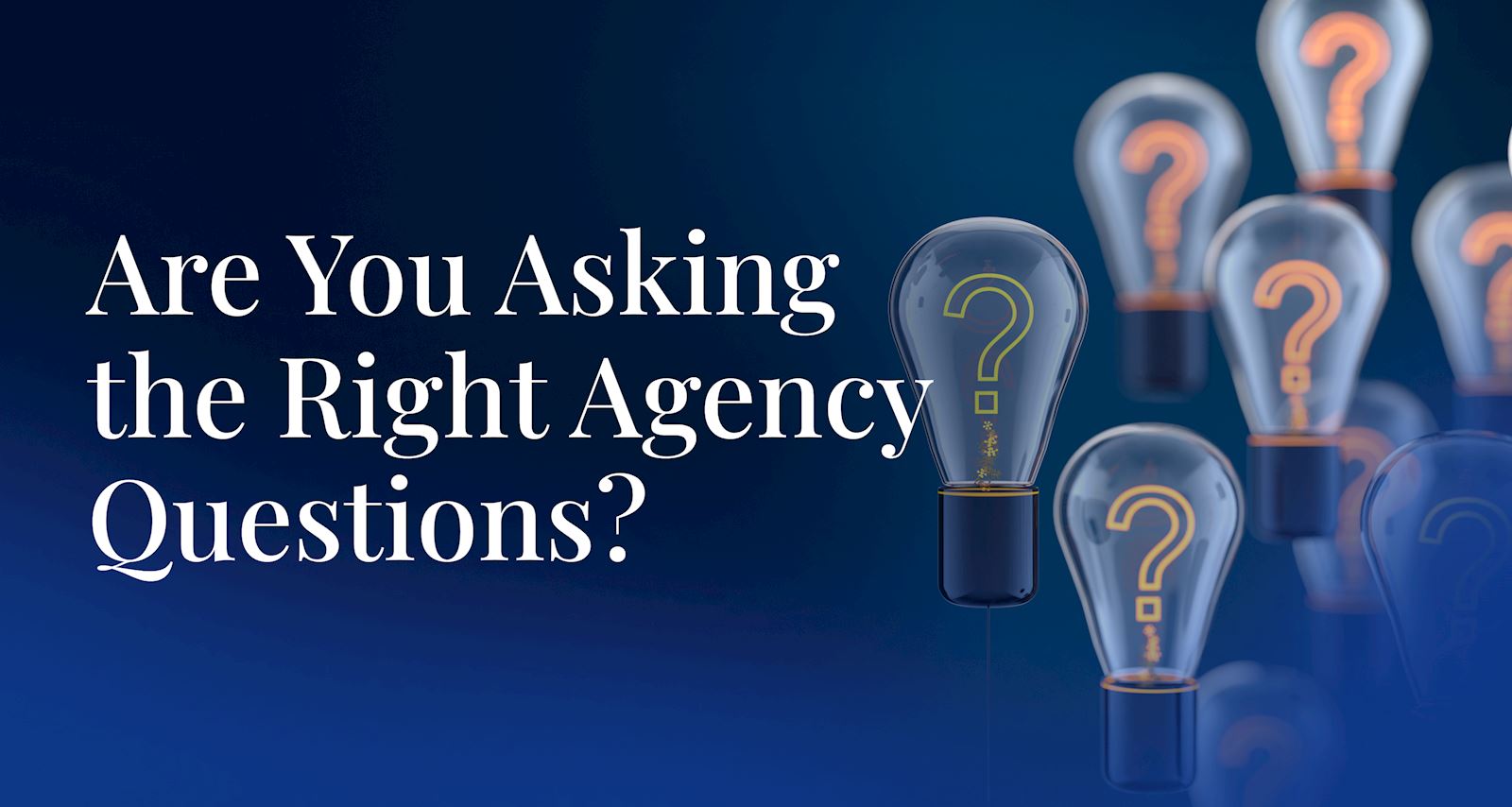10 Questions to Ask Your Digital Marketing Agency Partner
Published by Spinutech on June 23, 2025

Choosing the right agency isn’t just about capabilities — it’s about alignment, accountability, and future-proofing your strategy.
Whether you're evaluating a new agency or assessing an existing partnership, these questions will help you dig beneath the surface and uncover the expertise, transparency, and long-term value your brand needs.
1. How will you measure and report ROI on our campaigns?
A digital marketing agency should provide clear, consistent reporting on ROI tied directly to business objectives like leads, revenue, pipeline velocity, and customer acquisition cost (CAC).
Look for:
- Attribution models used
- Frequency and depth of reporting
- Transparency around data sources and performance calculations
- Alignment with sales KPIs and CRM integration
2. Which attribution models do you use, and how do they align with our customer journey?
Top agencies should tailor attribution models (e.g., multi-touch, data-driven, linear) to reflect your sales cycle and channels, not rely on one-size-fits-all defaults.
This helps you:
- Understand cross-channel impact
- Avoid over-investing in underperforming touchpoints
- Optimize spend across the full funnel
- Support full-funnel GTM efforts with accurate performance insights
3. What KPIs will you be accountable for, and how are they tied to our business goals?
A performance-driven agency should align their KPIs (like ROAS, CPL, or LTV) with your business outcomes and proactively report against them.
Ask for:
- A KPI framework tailored to your funnel
- Marketing-to-sales conversion metrics
- Visibility into pipeline contribution and influenced revenue
- Historical performance benchmarks
4. What is your approach to continuous optimization and testing?
Leading agencies follow a test-and-learn culture with structured A/B testing, audience segmentation, and iterative creative and bidding strategies.
Look for:
- Cadence of optimization cycles aligned to your GTM launches
- Tools used for experimentation
- Examples of learnings that impacted strategy and influenced pipeline or sales outcomes
5. How do you manage budget fluctuations and prioritize spend?
An experienced agency will reallocate budgets based on performance signals, seasonal trends, sales cycle stages, and shifting GTM priorities – while protecting long-term growth goals.
Expect:
- Forecasting models tied to expected outcomes
- Real-time budget pacing tools that prioritize high-intent or high-value accounts
- Strategic recommendations for reallocating spend that adapt to changes in demand or sales focus
6. What tools, technology, and AI capabilities do you leverage?
A modern agency should offer a mix of proprietary tools and leading platforms for data analysis, automation, and AI-enhanced optimization — with a clear path to aligning with your sales tech stack.
Ask about:
- Use of AI in campaign management, lead-scoring and predictive analytics
- Custom dashboards for real-time performance visibility across teams
- Integration with your tech stack (e.g., CRM, CDP, analytics)
7. How will your team communicate with ours — and how often?
Clear communication should include a defined cadence of meetings, points of contact, escalation protocols, and access to performance data.
Clarify:
- Weekly, biweekly, or monthly calls — and who’s at the table
- Cross-functional collaboration and communication between marketing ops, sales ops, and analytics
- How real-time performance insights are shared across teams
8. What’s your experience in our industry or with brands with similar growth goals?
Agencies with relevant vertical expertise bring valuable context, benchmarks, and proven strategies — especially in complex B2B or DTC spaces.
Ask for:
- Case studies that demonstrate marketing-to-sales impact
- Insights on industry trends and platform changes
- Experience with long sales cycles, high CAC, or niche audiences
- GTM launches in similar industries, regions, or audience segments
9. How do you ensure alignment between brand voice and performance campaigns?
A strategic agency should embed your brand standards into all creative and messaging — while tailoring content by funnel stage, audience segment, and account tier.
Evaluate:
- Onboarding and creative QA processes
- How content is adapted for ABM, sales enablement, and nurtures
- Collaboration with your internal brand or content teams
10. How do you future-proof your strategy and stay ahead of algorithm changes?
Your agency partner should be proactive about adapting to evolving platforms, policies, and audience behavior — not reacting after performance dips.
Ask about:
- How GTM strategy is adjusted in response to shifting buyer behavior
- How they monitor and respond to platform changes
- Thought leadership or education provided to your team
Bonus: 5 red flags to watch for
- Vague or vanity metrics with no tie to ROI or pipeline
- No clear plan for optimization, AMB or GTM execution
- Cookie-cutter solutions across clients
- Little visibility into data or budget pacing
- Lack of curiosity about your business priorities
The right questions will connect you to the right partner
When you're investing significant dollars and expecting serious results, the questions you ask shape the partnership you build. A great agency isn’t just a service provider — they’re a strategic ally in the growth of your brand.
At Spinutech, we thrive on accountability, strategic alignment, and performance you can see.
Let’s talk if you're ready for a partner who answers every question with confidence — and results.